I want to be able to send push notifications using Titanium and Arrow Push on Android.
I have followed the instructions here:
Subscribing to push notifications
My simple code looks as follows:
var CloudPush = require('ti.cloudpush');
var deviceToken = null;
// Works fine
CloudPush.retrieveDeviceToken({
success: function () {
deviceToken = e.deviceToken;
alert('deviceToken: ' + deviceToken);
subscribeToChannel();
},
error: function () {
alert('Failed to register for push notifications! ' + e.error);
}
});
// Never runs!!!
CloudPush.addEventListener('callback', function (evt) {
Ti.API.info('New notification!');
alert("Notification received: " + evt.payload);
});
// Works fine
function subscribeToChannel () {
Cloud.PushNotifications.subscribeToken({
device_token: deviceToken,
channel: 'general',
type: Ti.Platform.name
}, function (e) {
if (e.success) {
alert('Subscribed');
} else {
alert('Error:\n' + ((e.error && e.message) || JSON.stringify(e)));
}
});
}
Most of the above code is similar to the docs. The subscription aspect of the code seems to works perfectly fine, as the user's device also appears in the devices section of the Appcelerator Dashboard.
However when it comes to sending a notification, from the Appcelerator Dashboard, the word "Failure" appears next to my Android device.
The full error message when highlighting the "?" icon is as follows:
Exception Type: GCM; Error Code: 3103; Error Message: RegistrationId(s) is null or empty; Catched Exception: argument cannot be null
I looked this error up on http://docs.appcelerator.com/arrowdb/latest/#!/guide/troubleshooting and all it says is:
The GCM client provided a null or empty registration ID. This error is uncommon if you are using the Modules.CloudPush module.
Which isn't helpful.
What am I doing wrong? Is this a bug on Accelerator side.
